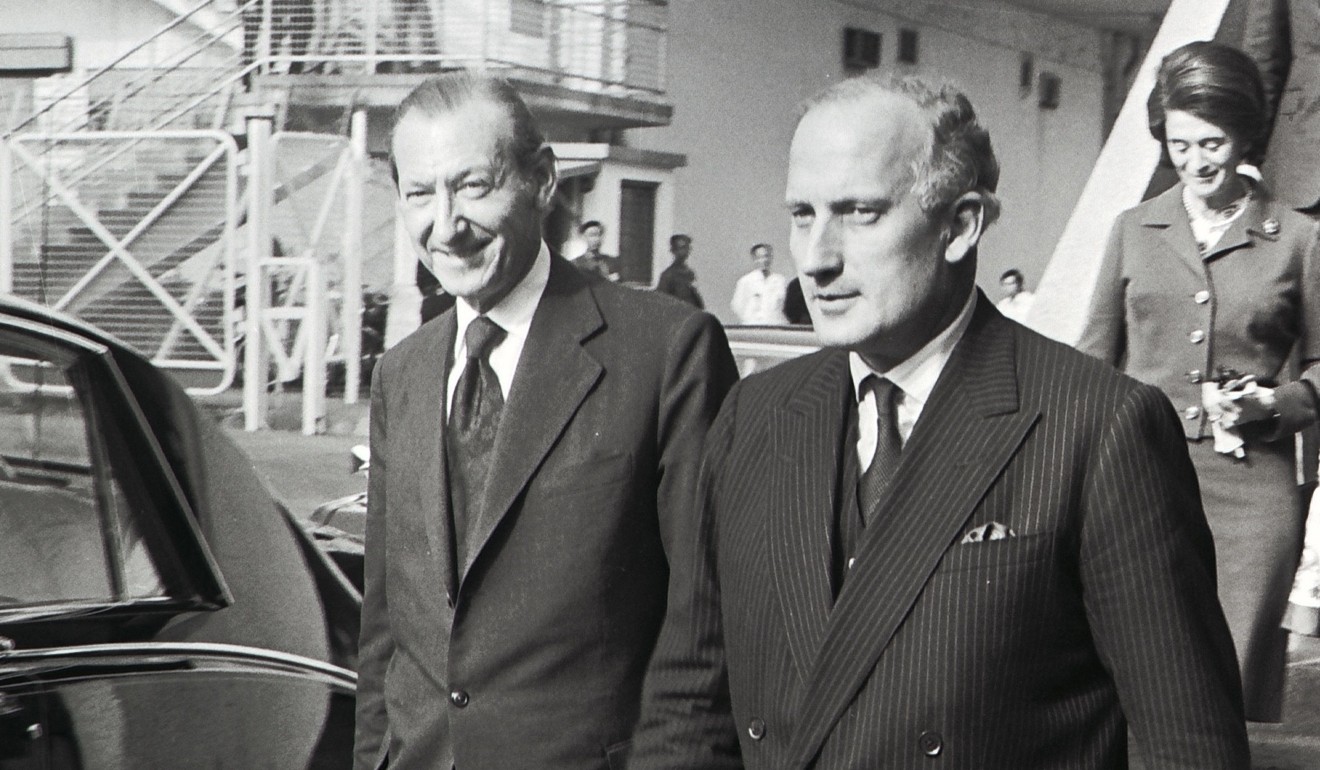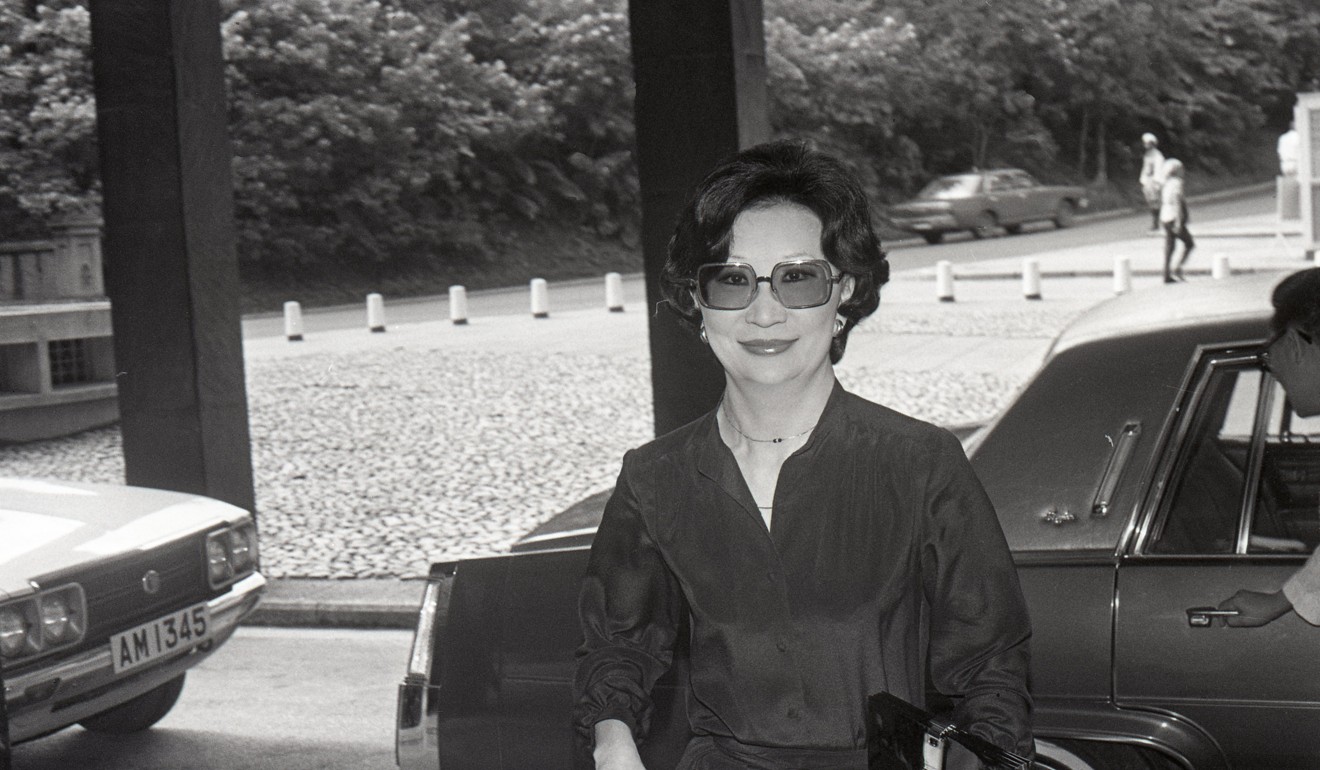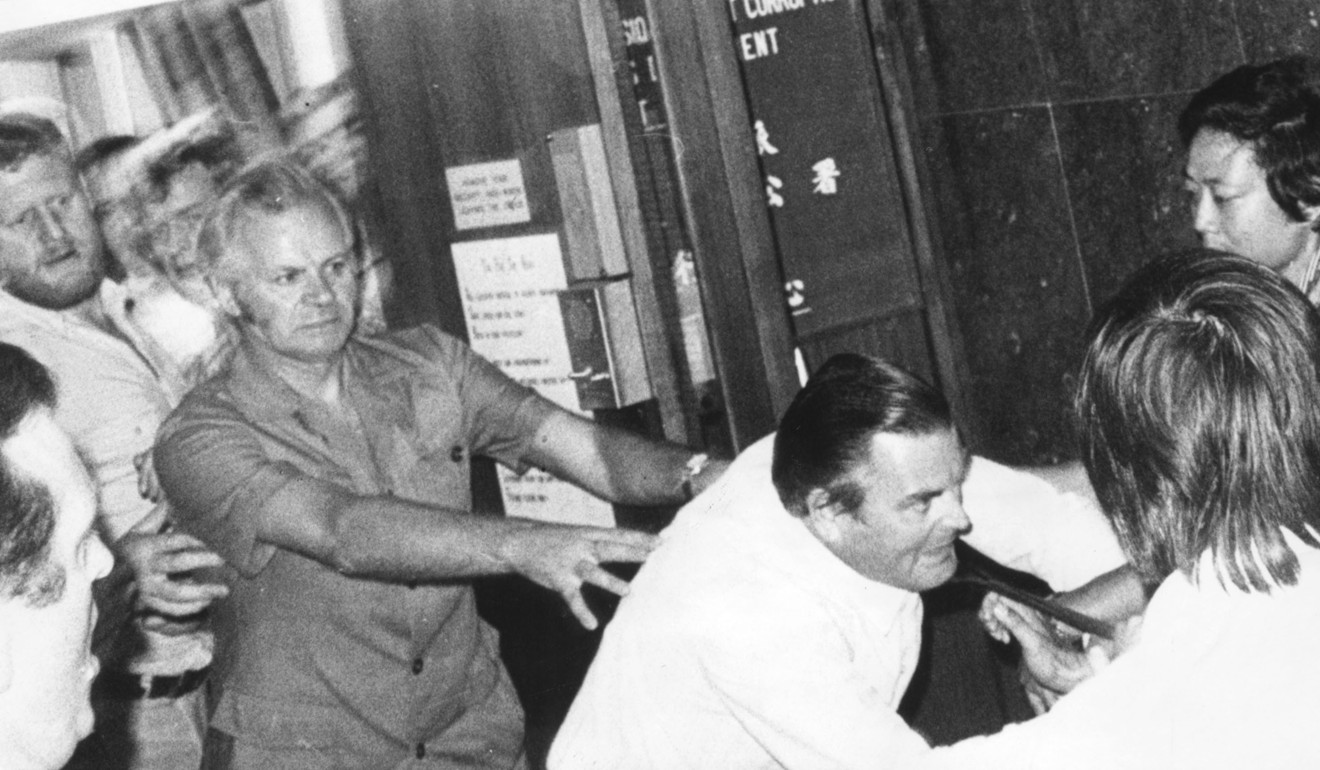
Police protests, a female lawmaker’s challenge and toy pistols: Hong Kong headlines from four decades ago
A journey back through time to look at significant news and events reported by the South China Morning Post during this week in history
Forty years ago this week, fighting corruption was a perennial challenge on both sides of the border. In Hong Kong, efforts by the Independent Commission Against Corruption to tackle graft were met with resistance, triggering massive protests by police officers. Beijing also kicked off a campaign to stamp out corruption, gambling and capitalism in the country. Meanwhile, a female lawmaker’s open disagreement with the governor over a trade issue at a Legislative Council meeting raised a few eyebrows because such a situation was unprecedented in colonial Hong Kong.

October 23, 1977
● RTHK was told to adopt new methods of operation by the ICAC following complaints that the station was employing disc jockeys who held full-time jobs with record companies. Staff management subsequently told senior employees to be careful about “plugging” record companies and local products.

October 24, 1977
● The UN secretary general, Dr Kurt Waldheim, expected the general assembly to take action on new anti-hijacking measures. The UN agreed to a quick full-session debate on air piracy that week, following a threat by pilots around the world to stage a 48-hour global strike. They were protesting against the killing of a West German Lufthansa pilot by hijackers a week before.
October 25, 1977
● China launched a massive campaign to stamp out corruption, gambling and capitalism. It was claimed that the anti-graft drive would improve the living standard of Chinese peasants. It was later revealed that public funds had been squandered by civil servants on banquets and gifts.
● Toy cap pistols, banned after an accident in which eight people were killed 14 years ago, were again being sold in the city – but illegally. This time round, a variety of them were available, particularly a miniature version that could be attached to a key ring. A Labour Department spokesman said the toys had been illegally imported from overseas.
Shock therapy for ‘sexual perversions’, kung fu clashes and supersonic jetliners: Hong Kong headlines from four decades ago
October 26, 1977
● A 25-year-old Australian woman was given permission by the central government to marry her mainland Chinese boyfriend, son of a veteran member of the People’s Liberation Army. Susan Day, who had earlier been denied the right to do so, was given the good news by her employer, the Bureau of Foreign Experts in China. The pair met when Day was teaching English at the Xian Languages Institute. Her boyfriend was an administrative staff member at the institute. About a month before this, a French woman was also given permission to marry her Chinese boyfriend whom she met while they were both studying at Shanghai’s Fudan University.
October 27, 1977
● A British proposal to replace the United Kingdom and Colonies citizenship with a two-tier British citizenship – comprising citizen and overseas citizen categories – was described as “extremely unfair” by senior unofficial legislator S.Y. Chung. He said the move was “in fact dangerous to the well-being of Hong Kong.” He added that the proposal would have far-reaching effects, particularly for Hong Kong, and that it should not be done at the expense of British residents of dependent territories like Hong Kong.
● The government was urged to establish an organisation to coordinate cultural activities in the city. It was hoped that having such a central body would help prevent the overlapping of efforts and resources as well as set forth a clear and comprehensive cultural policy.

October 28, 1977
● Legislator Lydia Dunn told Governor Murray MacLehose that she disagreed with his view about the city being well placed to take advantage of growth in world trade the next year. Her criticism of the British government, for its acquiescence over import restrictions by the common market on Hong Kong, was the first time that a female legislator had openly shown disagreement with the governor.

October 29, 1977
● The Foreign Office in London was monitoring the ongoing crisis in the Hong Kong Police Force and awaiting a full report from the governor. The office believed the recent police protests could be triggered by investigations conducted by the ICAC, which might lead to further arrests. Even though the protests were not yet seen as a major challenge to law and order in the city, the office feared this could change if there were further demonstrations. A massive police march on police headquarters took place a day before when five ICAC investigators were injured by a mob.
Remember A Day looks at significant news and events reported by the Post during this week in history

